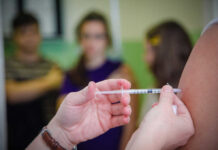
Millions of undiagnosed diabetes cases threaten public health systems globally, with young adults and low-income regions most affected.
Story Highlights
- Nearly half of global diabetes cases remain undiagnosed, primarily affecting young adults.
- Low- and middle-income countries (LMICs) face the greatest burden due to limited healthcare access.
- Diabetes-related health expenditures have surpassed $1 trillion globally.
- Experts call for urgent action to improve screening and early diagnosis.
Global Diabetes Undiagnosis: A Growing Crisis
A recent international study has revealed that nearly half of the global population with diabetes is unaware of their condition, placing undue strain on healthcare systems, especially in low- and middle-income countries (LMICs). The study underscores the urgent need for improved screening and early diagnosis, particularly among young adults who are frequently overlooked in health assessments. With diabetes becoming a silent epidemic, global health systems are at risk of being overwhelmed.
The International Diabetes Federation (IDF) recently published its 11th Diabetes Atlas, presenting new methodologies and regional focus to highlight these pressing issues. The report notes that the number of undiagnosed diabetes cases has risen sharply since 1990, exacerbated by factors such as obesity, sedentary lifestyles, and poor dietary habits. This lack of awareness significantly increases the risk of severe complications and premature death, further burdening already strained health systems.
Alarming! Millions Have Diabetes Without Knowing It, Finds New Study
A shocking new study reveals that almost half of the people with diabetes worldwide don’t even know they have the condition. #SciencePulse #DiabetesAwareness #SilentEpidemic #Health @HeenaSharma0819 pic.twitter.com/dleEi0kWix
— Asianet News English (@AsianetNewsEN) September 17, 2025
Economic and Social Impacts
Diabetes-related expenditures have now exceeded $1 trillion globally, impacting national budgets and widening social inequalities. The economic burden is particularly acute in LMICs, where healthcare resources are limited, and fewer than 40% of adults with diabetes receive necessary medication. This financial strain is compounded by the need for extensive public health interventions to address the growing number of undiagnosed cases.
The pharmaceutical and medical device industries are seeing increased demand for diabetes-related products, signaling a heightened awareness of the condition. However, insurance and public health sectors are grappling with rising costs and management challenges, prompting calls for policy changes and improved healthcare access.
Expert Recommendations and Future Directions
Health experts, including IDF Atlas Committee member Professor Dianna Magliano, have called for immediate action to enhance detection and reduce the diabetes burden. The World Health Organization (WHO) echoes this sentiment, emphasizing the need for policy reform and stronger healthcare systems. Experts argue that prevention, lifestyle interventions, and access to medication should be prioritized to mitigate the impact of this silent epidemic.
As the number of diabetes cases continues to grow, governments and health organizations globally are urged to implement comprehensive screening and prevention programs. Addressing this hidden epidemic is crucial not only for individual health outcomes but also for the sustainability of global health systems. The time for action is now, as delaying further could have catastrophic consequences for public health and economic stability.
Sources:
PMC Article on Undiagnosed Diabetes
WHO: Urgent Action Needed as Global Diabetes Cases Increase
IDF Diabetes Atlas 11th Edition
IDF Diabetes Atlas


















